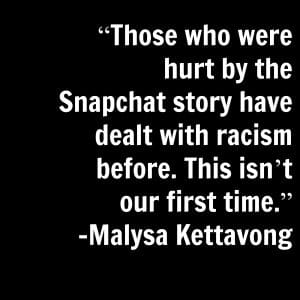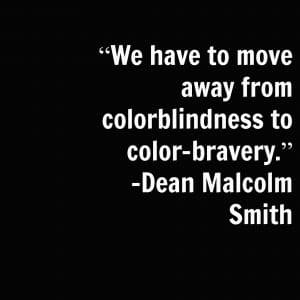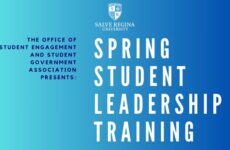By Marrissa Ballard, Stephanie Menders, Tara Stanzione, Ellena Sweet, Kristin Wilinkiewicz
SGA President Adriano Cirioli has resigned from his position amid criticisms of a post to his personal Snapchat account deemed racially insensitive. Patricia Socarras, SGA’s vice-president, has succeeded Cirioli as the student government’s new leader.
On Tuesday, November 10th, SGA held a meeting during which Cirioli resigned. On Friday, an official statement went out to the student body announcing Cirioli’s resignation.
“It’s with great turmoil that I’ve had to resign the presidency,” says Cirioli. “I’ve entered SGA with a whole heart, with the intent to serve the students and not be served. That’s the oath that I took when I took the office. I am sincerely sorry for all who were hurt, because that’s the last thing that I wanted to do.”
Events Leading up to Resignation
On the night of October 18th, Andy Cirioli, former president of Salve’s Student Government Association (SGA), posted a meme to his personal Snapchat story. The meme showed an image of singer Stevie Wonder with the caption, “I may be blind, but at least I’m not black.” Early Monday morning, Cirioli received a text message from a friend stating that the post was offensive and that he should take it down. Cirioli immediately removed the post and apologized.
According to Chiquita Baylor, the advisor for SGA, she approached Cirioli two days later with a screenshot of the snapchat. She asked Cirioli if he knew anything about it and he informed her that he had removed the original post. Baylor then explained that a couple of students had brought a screenshot of it to Dean Malcolm Smith.
Smith was unable to meet with Cirioli immediately, due to his absence from the University for personal reasons. In the meantime, Cirioli sought ways to rectify the situation. Under Baylor’s advisory, he started by issuing an apology on Snapchat. He then wrote a formal apology letter and sent it to the office of Multicultural Programs, the Multicultural Living Learning Community and the M.S.O. club.
On October 30th, Dean Malcolm Smith was able to sit down with Cirioli. Smith suggested that Cirioli should think about stepping down from his position as president. “As Dean of Students, I encouraged Andy to consider resignation, absolutely,” Smith states. “And that wasn’t anything about Andy as a person, but was about, in my opinion, Andy’s effectiveness to lead in light of this decision.”
“My first reaction was ‘I don’t want to leave my position,’” says Cirioli. “I still felt as if I could be an effective leader because I recognized my mistake and my lack of understanding and believed I was more fit to move forward.” By the end of their meeting, Cirioli had concluded that he needed more time to consider his decision. He told Smith that he would get back to him the following week.
Less than a week later, Smith met with Cirioli for a second time. Cirioli asked him about the possibility of having a face-to-face meeting with students who were personally affected by his post. “I wanted there to be a way for me to figure out how to move through this,” says Cirioli. “I wanted to talk to them about what to do and then, through that meeting, express my apology to them.” It just so happened that Smith had already planned on meeting with a group of these students that Friday, so he invited Cirioli to join. Cirioli attended the meeting with Smith, and the two made plans to meet again the following week to decide how to proceed.
However, before Cirioli and Smith could meet again, Cirioli received a call from Barbara LoMonaco, the Vice President for Student Affairs. Cirioli had been working with Sami Nassim, the Director of Multicultural Programs, to organize a meeting with the group of students who were personally affected by his post. LoMonaco was calling to inform Cirioli that the students were willing to meet with him at 9:00 a.m. the next morning, November 10th. “I was nervous, but I knew it was something that had to happen,” says Cirioli.
According to Nassim, who also attended the meeting, the purpose of the discussion “was the community sharing what they felt with Andy, and based on that, he made his decision. People are entitled to say, ‘Andy shouldn’t have resigned,’ just as people are entitled to say ‘I voted for Andy, I don’t feel that Andy represented me after what he posted.’”
Cirioli remembers the discussion being marked by a range of emotions. “There was anger and sadness and tears,” says Cirioli. “The last thing I wanted to do was any of this. It’s like the antithesis of my presidency.”
Some students believe Cirioli’s presidency had spearheaded efforts to create a more inclusive community at Salve. In a personal letter penned to the Mosaic, senior SGA senator Connor Sullivan describes Cirioli as “the school’s greatest asset when it comes to promoting diversity.” According to Sullivan, Cirioli’s initiatives as president included a letter supporting a multicultural curriculum, the creation of multicultural and diversity committees, and efforts to develop a multicultural capstone course.
Despite Cirioli’s contributions to a more inclusive environment at Salve, by the end of Cirioli’s meeting with students on Tuesday, a consensus was reached: Cirioli was no longer fit to lead SGA. The students also expressed concern over the fact that, if he stayed, it would look like the University tolerated his actions. After hearing their thoughts, Cirioli felt compelled to step down. “Obviously, I didn’t want to leave and I wish there was a way for me to have continued, but after speaking with the students, I knew I couldn’t,” he says.
After speaking with Sister Jane and Barbara LoManaco later that day, Cirioli committed to his decision. “Nobody told me I had to resign,” says Cirioli. “No one said ‘Andy, I want your resignation.’ It may have been recommended to me by one or two individuals, but I’ve gotten advice from across the board. I believe this was the best thing for the University and the student government because now we have a clear indicator that this University doesn’t tolerate these kinds of actions,” says Cirioli.
That evening, SGA held its weekly meeting, during which Cirioli announced his resignation. It was also established that Socarras would be taking his place as president, in accordance with SGA’s constitution.
On Friday, November 13th, SGA released a statement via mass email notifying the Salve community of Cirioli’s resignation. The statement did not mention the series of events that led to Cirioli stepping down. Camila Infanzon, a junior Health Care Administration and Business Administration major who had been present at previous meetings, found the statement lacking. “I understand why they’re releasing the statement in the way that they are, but I think it doesn’t address the problem,” says Infanzon. “It just creates another problem because students will not understand why this is happening.”
Emilee Duffy, a junior Sociology and Anthropology major, agrees that the statement was ambiguous. “The whole community needs to know about this in order for us to be unified to move forward,” says Duffy. “I think the facts need to be clear so that people understand the breadth of the situation and can use it as a learning experience.”
Responses to Cirioli’s Resignation
Cirioli’s resignation inspired mixed feelings from students and senators alike. Steven Quinones, a sophomore who lives in the Multicultural Living and Learning Community, believes that the situation could have been handled better. “While it was in poor taste, I don’t feel like it was necessarily a big enough issue that SGA should’ve gone that far with it,” Quinones says. Even so, Quinones respects Cirioli’s decision. “I feel like in that situation, he was being the bigger man by resigning, because he understood that some people were offended,” he says.
 Other students believed that it took SGA too long to resolve the issue. Malysa Kettavong, a Salve Regina sophomore, felt that it should not have taken 3 to 4 weeks for students to learn about the situation. Kettavong attended a private session that was held by SGA on November 14th. At this session, students who had previously expressed interest in speaking with SGA were invited to share their thoughts while remaining anonymous. “I don’t think the private session was at all constructive,” says Kettavong. “I think SGA knew we were hurting and that we had very strong emotions. Yet, given this, they only allowed thirty minutes for the session. Thirty minutes to talk about racism and what actions Salve should take isn’t enough time.”
Other students believed that it took SGA too long to resolve the issue. Malysa Kettavong, a Salve Regina sophomore, felt that it should not have taken 3 to 4 weeks for students to learn about the situation. Kettavong attended a private session that was held by SGA on November 14th. At this session, students who had previously expressed interest in speaking with SGA were invited to share their thoughts while remaining anonymous. “I don’t think the private session was at all constructive,” says Kettavong. “I think SGA knew we were hurting and that we had very strong emotions. Yet, given this, they only allowed thirty minutes for the session. Thirty minutes to talk about racism and what actions Salve should take isn’t enough time.”
Kettavong believes that there should be a public forum to discuss these important issues more freely and for a longer period of time. “Those who were hurt by the Snapchat story have dealt with racism before. This isn’t our first time,” Kettavong says. “ What hurts the most is being in such a great community that promotes a harmonious, just and merciful world that we thought would protect us, yet we are still being viewed as a joke to put on social media – even by our leaders of the community. Even then, it is being handled lightly compared to many other universities in the country.”
Carly Perini, a junior English Literature major, was shocked and upset by the resignation itself. “I feel like I just experienced a coup,” Perini says. “It was so secretive, and so sudden, and I feel like I had no chance to voice my opinions. SGA is about the student body being represented, but the student body was kept in the dark about everything,”
While Perini understands why Cirioli would be held to a higher standard than other students, she still believes the response was too severe. “I feel almost as if he was cornered into resigning,” Perini states. “Knowing he resigned willingly, it almost makes this whole situation worse. It feels like he’s trying to save SGA’s reputation.”
According to David Fairchild, the Treasurer of SGA, the entire experience helped SGA grow and learn. “We grew stronger as leaders,” Fairchild explains. “I can sense that I have a clearer head than I did two weeks ago, and I think a lot of senators are the same way.” Though Fairchild understands why Cirioli resigned, he notes that some people might need more time to process these events. “We still have people that may feel that Andy did enough that this shouldn’t have been a scar, but I think it’s really important to set an example,” Fairchild states.
Fairchild, along with most of SGA, now wants to focus on what can be done moving forward. “I really think on-campus dialogues and open inclusiveness in all our programs is the next step,” Fairchild explains.
Patricia Socarras, the new president of SGA, is currently thinking of holding an open forum.“From here I want to continue a dialogue,” Socarras says. “I want people to be able to speak about this in a respectful and intelligent way. I want to take this opportunity and work with it and change the campus – I want to change things.”
Socarras wants students to feel comfortable voicing their concerns. “I come to serve and not to be served,” Socarras says. “I want students to show up to our meetings and talk to us.”
Chiquita Baylor believes that this situation has led to more open discussions about race at Salve. Baylor also emphasises how important these discussions are for students of color. “It shined a light on a lot of the issues Salve is experiencing, and it seems as if the campus is open to that dialogue. I’m not sure if it was before,” says Baylor.
 In Dean Malcolm Smith’s opinion, this whole situation has the potential to “open up a conversation” that needs to happen on Salve’s campus. “There is an experience faced by marginalized people and my hope is that we would learn to embrace those issues and validate those experiences,” Smith states. “I would challenge our community to realize that validating someone else’s experience does not negate yours.”
In Dean Malcolm Smith’s opinion, this whole situation has the potential to “open up a conversation” that needs to happen on Salve’s campus. “There is an experience faced by marginalized people and my hope is that we would learn to embrace those issues and validate those experiences,” Smith states. “I would challenge our community to realize that validating someone else’s experience does not negate yours.”
Smith would like to push for a continual dialogue about these issues. “The true power of this would be if we were having a dialogue about this in the classroom,” Smith explains. “If there was a requirement in the core about race, that would be powerful.”
Sami Nassim also feels that part of the answer lies in the addition of classes that explore these types of subjects. “I don’t see a lot of educational components in our curriculum that provide our students with cross-cultural competency,” he says. Nassim believes that more conversation about matters of gender, sexual orientation, and culture differences, in addition to race, would help educate students on this sort of behavior.
Both Smith and Nassim hope that this situation will inspire more education on Salve’s campus. According to Smith, all members of the University must ask themselves how they can become a part of the solution and bring more awareness to campus. “I hear our students talk about colorblindness, and I would say that colorblindness is just a pretty, wrapped up term for being passively okay with systematic racism,” Smith states. “We have to move away from colorblindness to color-bravery.”
Moving Forward
 “If I could go back in time, I’d take it back,” Cirioli says. “But I can’t, so I need to focus on tomorrow and what I will do in the future. I am a firm believer that one is not defined by their mistakes, but rather how they master that time when it does arrive. How one stands after they have fallen.” Cirioli is confident that this experience won’t interfere with his leadership ability. “You don’t need to be someone with a title to lead,” he says. Cirioli plans on working as an intern in the office of Multicultural Programs, under the supervision of Sami Nassim in the future. Nassim agrees that Cirioli will continue to be a student leader, regardless of his resignation. “He doesn’t need the formal title,” Nassim says.
“If I could go back in time, I’d take it back,” Cirioli says. “But I can’t, so I need to focus on tomorrow and what I will do in the future. I am a firm believer that one is not defined by their mistakes, but rather how they master that time when it does arrive. How one stands after they have fallen.” Cirioli is confident that this experience won’t interfere with his leadership ability. “You don’t need to be someone with a title to lead,” he says. Cirioli plans on working as an intern in the office of Multicultural Programs, under the supervision of Sami Nassim in the future. Nassim agrees that Cirioli will continue to be a student leader, regardless of his resignation. “He doesn’t need the formal title,” Nassim says.
Cirioli hopes that, if anything, his experience will serve as a means of advancing awareness for issues regarding racial insensitivity and discrimination on campus. “I think it’s important for people to know what I did, what action I took and the result of that,” he says. “Moving forward, I’m more conscious about what I do and that’s not a bad thing.”
Dean Malcolm Smith’s aspiration for the rest of the Salve community is that they will use these events as a means of progress. “My hope is that this community can learn and grow from this and heal,” Smith says. “My belief is that from dissonance comes change. My hope is that change is positive.”













